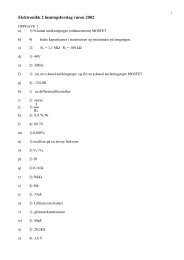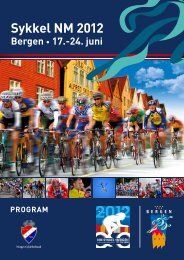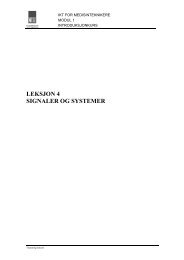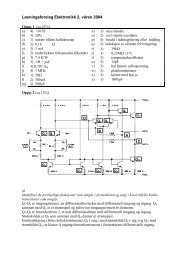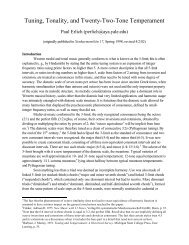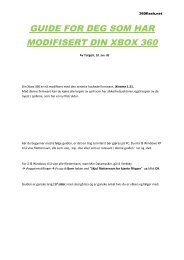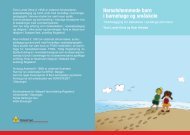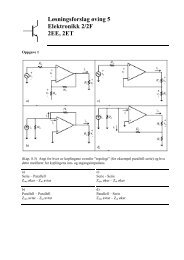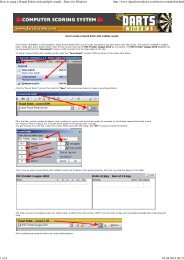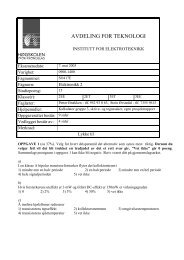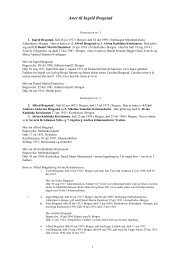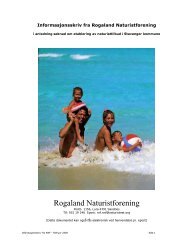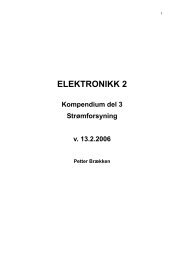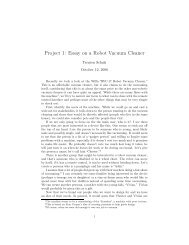The Online World resources handbook
The Online World resources handbook
The Online World resources handbook
Create successful ePaper yourself
Turn your PDF publications into a flip-book with our unique Google optimized e-Paper software.
Selected online services http://home.eunet.no/~presno/bok/v1.html<br />
EUNET is a UUCP based network in Europe. JUNET is an equivalent network in<br />
Japan. <strong>The</strong>re are many gateway machines that exchange mail between UUCP and the<br />
Internet. Among these, UUNET.UU.NET is among the most frequently used<br />
(http://www.uu.net).<br />
Usenet (User Network)<br />
Usenet, Netnews, or just "News" are common terms for a large many to many<br />
conferencing (only) system distributed through UUCP, Internet, FidoNet, and BITNET.<br />
<strong>The</strong> European portion of Usenet is called EUNET (European Unix NET).<br />
This grassroots driven "network" has grown out of the global university and<br />
research domains. It is a service rather than a real network. It is not an organization, and<br />
has no central authority.<br />
In 1993, Usenet's newsgroups were carried by over 69,000 host computers (sites) in<br />
five continents, and had over 1,991,000 users (source: Brian Reid). In January 1995,<br />
Reid estimated 16.5 million users. In February, the number of sites were estimated at<br />
260,000 (source: <strong>The</strong> Internet Index). Many of these sites also have access to the<br />
Internet.<br />
<strong>The</strong> local administrator of each node in the network decides what newsgroups to<br />
receive and make available to its users. Few systems offer access to all of them.<br />
NetNews is organized in groups of 'conferences'. Each classification is organized<br />
into groups and subgroups according to topic. As of June 1, 1993, there were 4500<br />
newsgroups and 2500 regional newsgroups. Several sites are carrying over 2600 topics.<br />
In July 1995, there were over 15,000 newsgroups. In December 1996, PC/Computing<br />
estimated the number of newsgroups at over 28,000.<br />
On a typical day in December 1993, 43,000 Usenet articles were posted. In<br />
November 1996, 754 megabytes of information were posted daily to Usenet.<br />
<strong>The</strong> groups distributed worldwide are divided into seven broad classifications:<br />
"comp" Topics of interest to both computer professionals and hobbyists,<br />
including topics in computer science, software source, and<br />
information on hardware and software systems.<br />
"sci" Discussions marked by special and usually practical knowledge,<br />
about research in or application of the established sciences.<br />
"misc" Groups addressing themes not easily classified under any of the<br />
other headings or which incorporate themes from multiple<br />
categories.<br />
"soc" Groups primarily addressing social issues and socializing.<br />
"talk" Groups largely debate oriented and tending to feature long<br />
discussions without resolution and without much useful<br />
information.<br />
"news" Groups concerned with the news network and software<br />
themselves.<br />
"rec" Groups oriented toward hobbies and recreational activities.<br />
"alt"<br />
Also available are many "alternative" hierarchies, like:<br />
True anarchy; anything and everything can and does appear.<br />
Subjects include sex, and privacy.<br />
"biz" Business related groups<br />
"clari" Newsgroups gatewayed from commercial news services and<br />
other 'official' sources.<br />
Most Netnews hosts offer both global and local conferences. <strong>The</strong>se include Australian<br />
and Australasian (aus), and Jewish (shamash) newsgroups; groups coming from<br />
BITNET (bit), /CL Netz (cl), Z Netz (z netz), and Fidonet (fido) ; German (de),<br />
Japanese (fj), French (fr), Norwegian (no), Cyrillic (relcom), and Finnish (sfnet)<br />
10 of 11 23.11.2009 15:49



